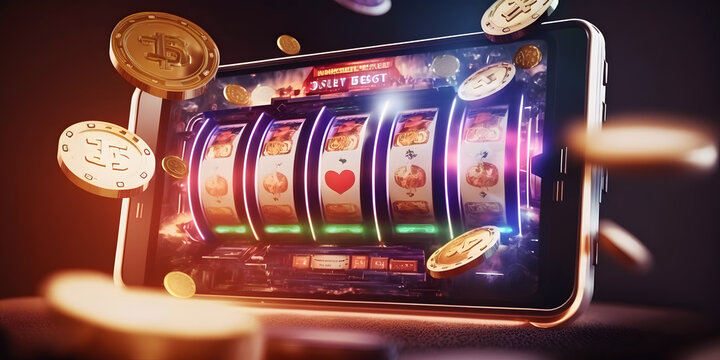
Slot machines, those mesmerizing contraptions that beckon with their flashing lights and enticing sounds, have long held a special place in the realm of gambling and entertainment. From the classic one-armed bandits to the modern digital marvels found in today's casinos, slots have undergone a remarkable evolution, captivating millions around the globe with their promise of fortune and excitement. But beyond the surface allure lies a fascinating world of psychology, mathematics, and technology. In this article, we'll take a deep dive into the inner workings of slot machines, exploring the mechanics, the allure, and the controversies surrounding these ubiquitous gaming devices.
A Brief History
The origins of the slot machine can be traced back to the late 19th century, with the invention of the first mechanical gambling device by Charles Fey in 1894. Fey's creation, known as the "Liberty Bell," featured three spinning reels adorned with symbols such as horseshoes, diamonds, and Liberty Bells. Players would pull a lever to set the reels in motion, hoping to land a winning combination.
Over the decades that followed, slot machines underwent numerous transformations, evolving from simple mechanical devices to sophisticated electronic and digital systems. The introduction of electromechanical slots in the mid-20th century paved the way for the development of video slots in the 1970s, which replaced physical reels with virtual ones displayed on a screen. Today, modern slot machines are powered by complex computer algorithms that determine the outcome of each spin, offering an endless array of themes, features, and bonus rounds.
The Mechanics of Chance
At the heart of every slot machine is a random number generator (RNG), a computer program that generates thousands of numbers per second. When a player initiates a spin, the RNG selects a random number corresponding to a specific combination of symbols on the reels. This process happens in milliseconds, creating the illusion of spinning reels and unpredictable outcomes.
Contrary to popular belief, slot machines do not have "hot" or "cold" streaks, nor do they remember past outcomes. Each spin is independent of the ones that came before it, and the odds of winning remain the same with every play. This concept, known as "randomness," ensures fairness and unpredictability in slot gameplay, although it also means that the outcome is purely based on chance, with no strategy or skill involved.
The Psychology of Play
Slot machines are designed to be inherently addictive, employing a variety of psychological techniques to keep players engaged and coming back for more. From the colorful graphics and catchy sound effects to the intermittent reinforcement of wins, every aspect of slot design is carefully crafted to maximize player enjoyment and retention.
One of the most potent psychological mechanisms at play is the concept of "near misses." When a player almost wins but falls just short of a jackpot, it triggers a sense of anticipation and excitement, compelling them to continue playing in the hopes of achieving that elusive victory. This phenomenon exploits the human brain's reward system, releasing dopamine—a neurotransmitter associated with pleasure and motivation—and reinforcing the behavior of gambling.
Controversies and Concerns
Despite their widespread popularity, slot machines have faced their fair share of criticism and controversy. Critics argue that they exploit vulnerable individuals, leading to problem gambling and financial hardship for some players. In recent years, there has been growing concern over the accessibility and ubiquity of slot machines, particularly in online and mobile gaming platforms where they are available 24/7.
Regulatory measures aimed at curbing problem gambling include mandatory warning labels, responsible gaming initiatives, and restrictions on advertising and marketing practices. Some jurisdictions have also implemented limits on bet sizes and maximum payouts to mitigate the potential harm associated with excessive gambling.
Conclusion
Slot machines occupy a unique place in the world of gambling and entertainment, blending elements of chance, technology, and psychology to create an immersive gaming experience. While they have brought joy and excitement to millions of players worldwide, they also raise important questions about addiction, fairness, and social responsibility. As the debate continues, it is essential to strike a balance between fostering innovation and protecting vulnerable individuals from the potential harms of excessive gambling. Ultimately, whether viewed as a harmless pastime or a serious societal issue, slot machines will undoubtedly remain a fascinating subject of study and debate for years to come.